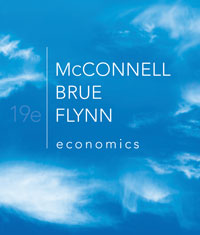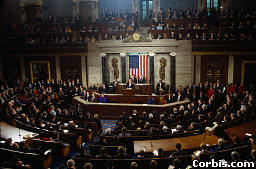
Economics (McConnell) AP Edition, 19th EditionChapter 30: Fiscal Policy, Deficits, and DebtOrigin of the Idea
Government plays an important role in the economy. Even the most politically conservative economists would agree that government is a necessary part of the economy, even if only to establish and enforce the rules by which people engage in economic activity. Using government purchases and taxation (fiscal policy) to influence macroeconomic performance, a somewhat less popular idea, did not become a significant issues until John Maynard Keynes and his followers, appropriately referred to as Keynesians, promoted it.
Alvin Hansen (1887-1975), often referred to as "the American Keynes," helped to formalize many of Keynes' ideas and was an active supporter of fiscal policy. Born in South Dakota, Hansen studied economics at Yankton College and earned his Ph.D. from the University of Wisconsin. He held teaching positions at Brown University, the University of Minnesota, and Harvard. Hansen frequently testified before Congress on economics, known by the trademark green visor he would wear. Hansen's greatest contribution to economics was his work on the IS-LM model, also known as the Hicks-Hansen synthesis. This model typically is taught in the Intermediate Macroeconomics course within the economics major. Photograph courtesy of: (c)Wally McNames/Corbis
Keynesian economists have traditionally been staunch supporters of the use of fiscal policy, and thus are loathe to criticize it. However, Alvin Hansen, known as "the American Keynes" for his work in interpreting the work of John Maynard Keynes, recognized the possibility of crowding-out before it became a formal criticism of fiscal policy. As Hansen acknowledged, In appraising the probable expansion of employment and income from a given increment of investment, it is necessary to consider not only the magnitude of the multiplier but also possible offsetting factors which may nullify (or intensify) the original impetus. Thus a net increase in outlays on public works [i.e. fiscal policy] may be nullified by decreased private investment. For example, the method of financing the public works may raise the rate of interest and so retard private investment. Milton Friedman, a critic of Keynesianism, popularized the idea, arguing that crowding out was substantial, perhaps dollar for dollar. In such a case, the multiplier would be zero. Most mainstream economists reject Friedman's extreme view. |  |
















